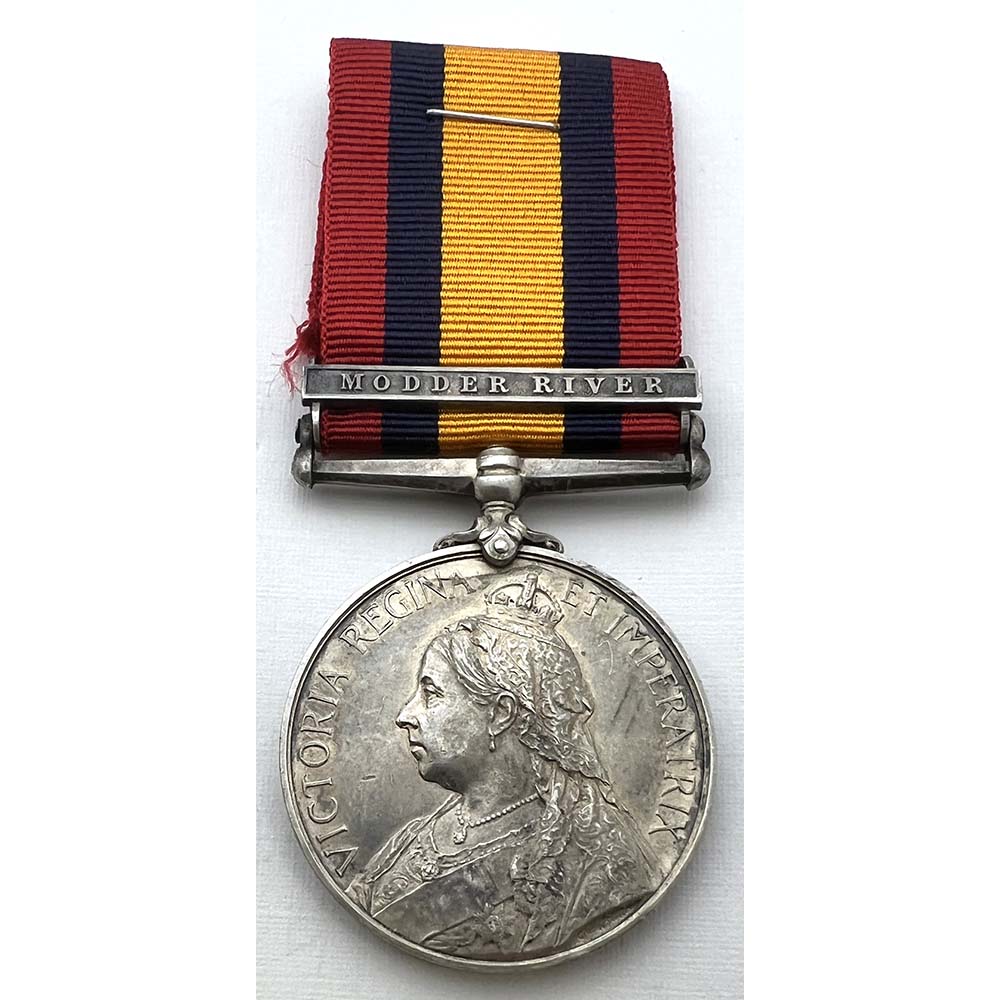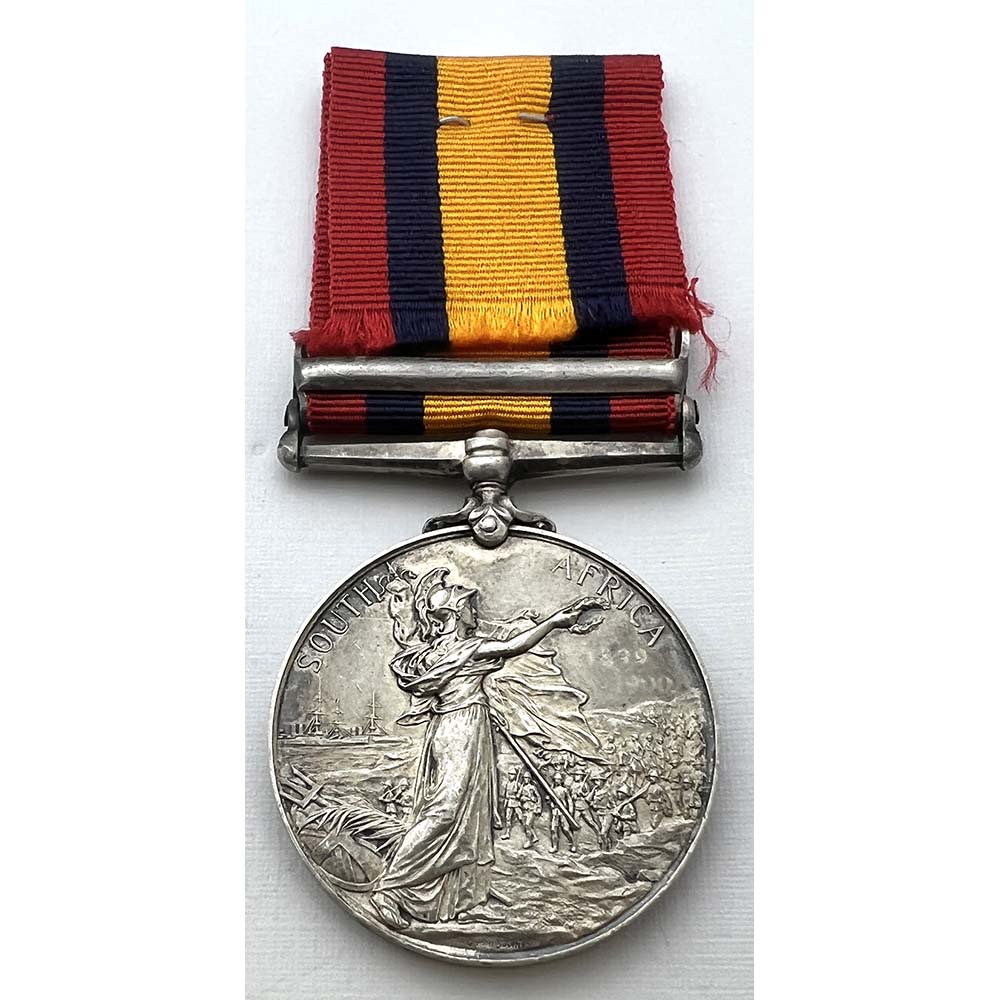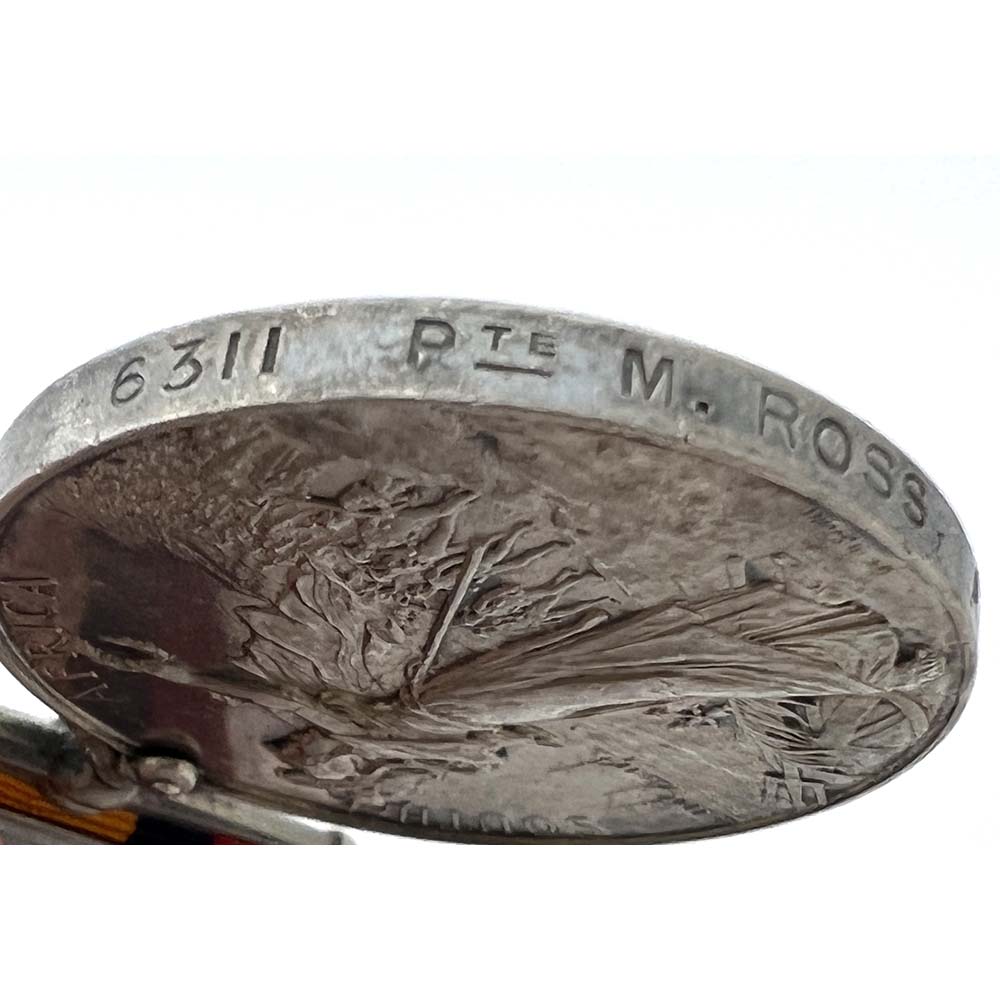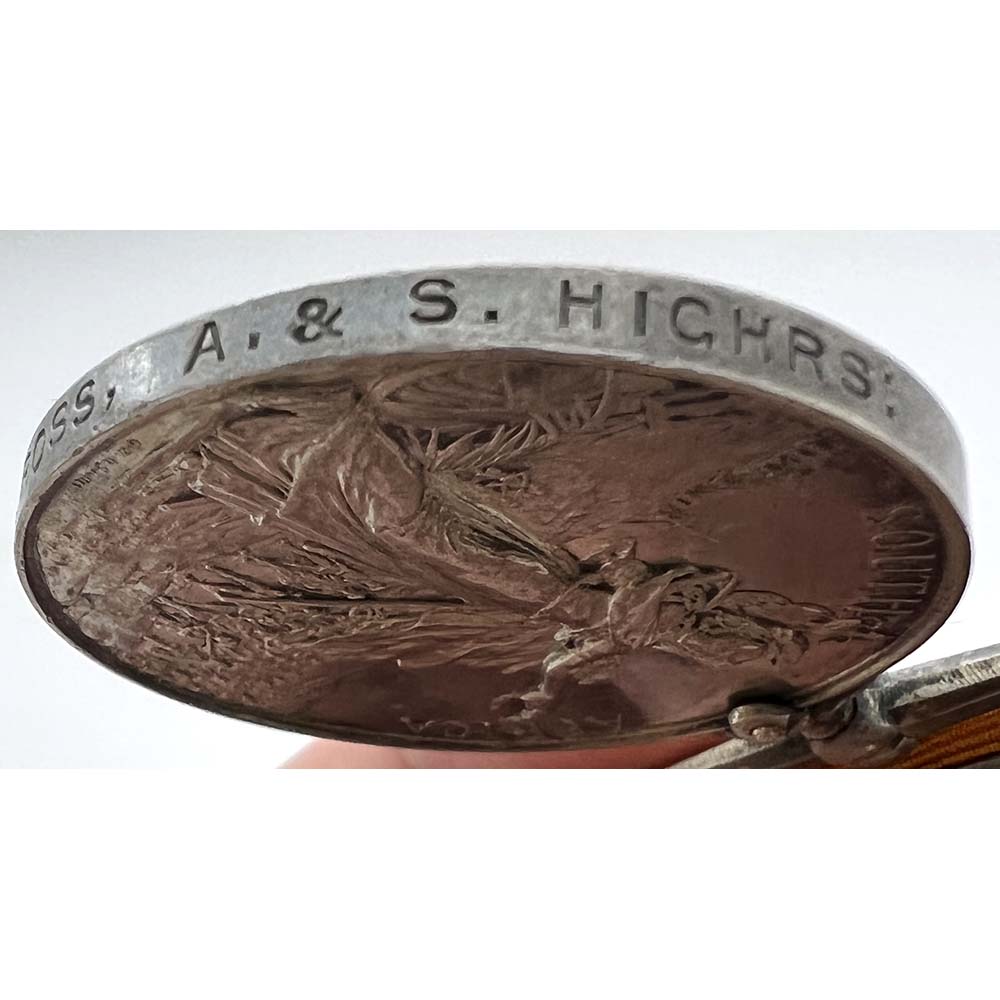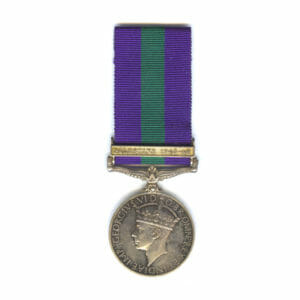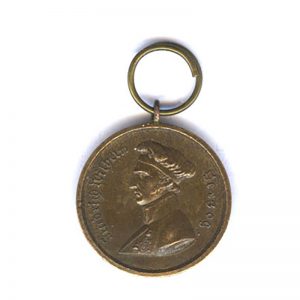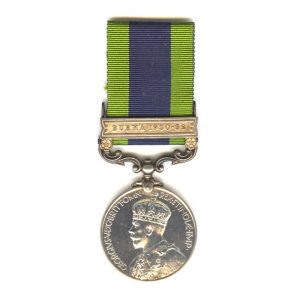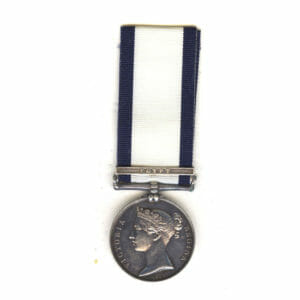Description
Queen’s South Africa Medal, bar Modder River, 6311 Private M. Ross, 1st Battalion Argyll & Sutherland Highlanders, who died on 30th 1899 of wounds received in action, only 2 days after Modder River.
Officially impressed: “6311 Pte M. Ross. A. & S. Highrs:” An early issue with large impressed naming and visible ghost dates.
Medal entitlement confirmed on the medal roll having earned the single clasp Modder River for his first and only battle before his death, the remarks reading “Deceased.”
Notice of his death was first published in the Daily Telegraph, London on 5th December 1899:
“CAPE TOWN, 4th December (1pm)
Following deaths from wounds received in action:
On November 30th:
6311 Pte McF Ross, 1st Argyll and Suth. Highlanders.”
He is now commemorated on the Argyll & Suth Boer War Memorial at Stirling Castle in Scotland.
During the Battle of Modder River which Lord Methuen wrote as “One of the hardest and most trying fights in the annals of the British Army.”, the British Force would receive about 72 killed, 372 wounded and 7 men missing.
The Argylls would bear the brunt of the majority of the casualties, receiving almost double of any other battalion engaged, losing 20 killed, 2 Officers and 93 Men wounded.
Notably during the battle, a company of the Argyll & Sutherland Highlanders made a gallant yet suicidal attempt to wade through the waist deep bank that separated the British and Boer force, in an attempt to directly assault the enemy’s trenches.
They made it through but were quickly driven back across, having to leave several men behind who had been killed in the Boer trenches on the far bank.
There is a painting of those men that attempted to cross the river with their guns held on their shoulders, as they approached the enemy head on.
